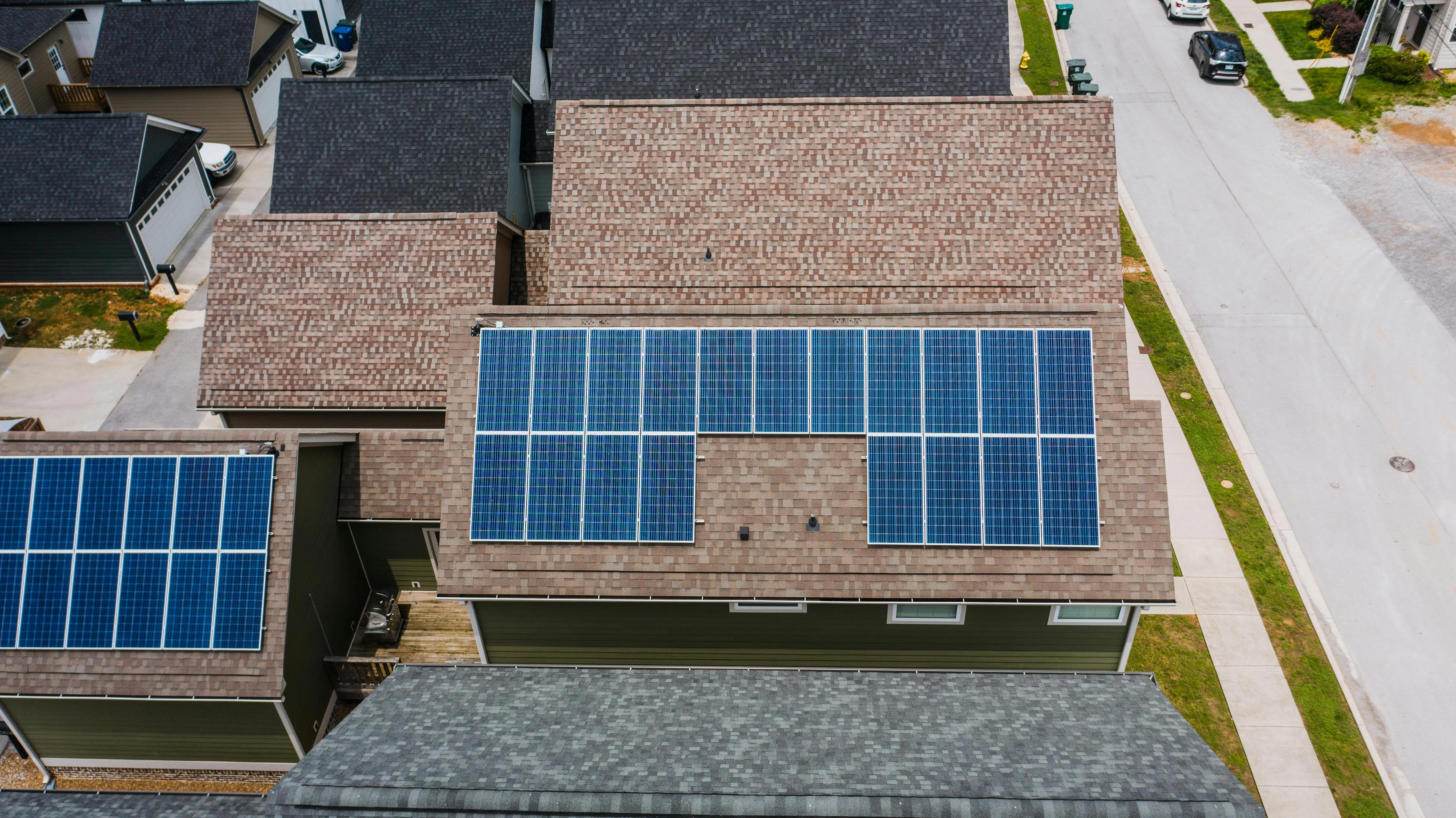Best Solar Financing Options in CT
Solar Financing towards Energy Independence
Harnessing solar energy provides homeowners with a sustainable way to reduce electricity expenses while contributing to environmental conservation. However, the initial investment required for solar panel installations can be a significant hurdle. Financing solutions bridge this gap, enabling individuals to adopt solar power without substantial upfront costs.
Government incentives, such as the Federal Solar Investment Tax Credit (ITC), further enhance affordability by offering substantial reductions in system expenses. These financial benefits make solar financing an appealing choice for those seeking to transition to renewable energy.
Made Affordable with Solar Financing Options
We strive to guarantee a smooth start to your solar journey. Thus, by collaborating with esteemed financial institutions, we can now provide unmatched satisfaction in assisting you with your solar installation. This paved the way of installing your solar panel without any upfront costs, thanks to our solar financing options! Ready to get started? Contact us today!
Benefits of Solar Financing
Solar financing offers homeowners a practical way to adopt renewable energy while enjoying immediate financial benefits. From reducing utility bills to increasing property value, financing options make solar energy accessible and affordable. Here are some of the benefits you can get:
- Immediate Savings on Energy Bills: Homeowners can start lowering their utility costs from day one, avoiding the need for a large initial payment.
- Stable Monthly Payments: Fixed repayment plans simplify budgeting and shield against unpredictable increases in electricity rates.
- Enhanced Property Value: Installing a solar energy system can boost home resale value, particularly when the system is owned outright.
- Access to Financial Incentives: Financed systems remain eligible for federal and local rebates, significantly reducing overall expenses.
How to Select the Right Solar Financing Option
Selecting the ideal financing plan involves evaluating key factors such as creditworthiness, loan terms, and interest rates. Understanding these elements ensures you secure a solution tailored to your financial situation and goals.
Choosing the most suitable financing plan requires careful consideration of several factors:
- Creditworthiness and Financial Profile: Lenders evaluate credit scores and debt-to-income ratios to determine eligibility and terms.
- Loan Duration and Interest Rates: Shorter repayment periods typically result in higher monthly installments but lower total interest. Conversely, longer terms offer smaller payments but may accrue more interest over time.
- Collateral Requirements: Secured loans, such as home equity options, often feature lower interest rates but require assets as security. Unsecured alternatives, like personal loans, do not demand collateral but may come with higher rates.
- Comparison Shopping: Utilize platforms like EnergySage or consult with your installer to evaluate multiple offers and identify the most favourable terms.
Steps to Obtain Solar Financing
Securing solar financing is a meticulous process and should be taken seriously. From researching options to finalizing the agreement, these steps will help you navigate the process with confidence. Here are steps that you can follow:
- Explore Available Options: Investigate offerings from banks, credit unions, online lenders, or specialized financial institutions.
- Collaborate with Your Installer: Many solar providers have established relationships with lenders and can guide you through the process.
- Review Agreement Details: Scrutinize the terms, including interest rates, fees, repayment schedules, and any penalties for early settlement.
- Complete the Application: Submit the necessary documentation and meet all lender requirements to secure approval.
Our Solar Financing Options Partners
FAQ
Check out our most frequent solar financing questions here.
One of the most trusted options for solar financing in Connecticut is the Connecticut Green Bank. They offer the Smart-E Loan program, specifically designed for homeowners looking to install solar panels. This program provides competitive interest rates and flexible terms, making solar energy more accessible and affordable. For more details, visit their official website.
There are several ways to finance a solar panel system, and the best option depends on your financial situation and local programs. Common financing options include:
- Solar Loans: Low-interest loans specifically for solar installations.
- Leases or Power Purchase Agreements (PPAs): Pay little to no upfront cost and make monthly payments based on energy usage.
- Home Equity Loans: Use your home’s equity to fund solar installation.
- Government or Utility Incentives: Rebates, tax credits, or grants that reduce the overall cost.
To explore the best options for your area, consult trusted sources such as the ones that are stated here.
Government incentives and rebates vary depending on your location, income, and the type of solar system you install. Some popular incentives include:
- Federal Solar Tax Credit (ITC): Offers a 30% tax credit on the total cost of your solar system.
- State or Local Rebates: Some states and utilities offer additional cash rebates or incentives.
- Net Metering: Earn credits for excess energy sent back to the grid.
To determine your eligibility, contact reliable sources such as the ones that are stated here.
The Smart-E Loan program, offered by Connecticut Green Bank, is a solar financing option designed to make solar energy affordable for homeowners. Key features include:
- Low Interest Rates: Competitive rates to reduce the overall cost of your solar investment.
- Flexible Terms: Loan terms tailored to fit your budget.
- Quick Approval: Streamlined application process for faster access to funds.
This program is ideal for Connecticut residents looking to switch to solar without a large upfront payment.
For more information please contact us.
Yes! Many homeowners combine solar financing options like loans or leases with government incentives to maximize savings. For example:
- Use the Federal Solar Tax Credit to offset the cost of a solar loan.
- Pair a PPA with state or utility rebates to lower monthly payments.
Always consult with your solar provider or financial advisor to explore the best combination of incentives and financing for your situation.
Articles you might like
Check out our other pages
Need assistance?
- Contact us here
- Call us – 203-408-2440
- Business Hours – 9am to 5pm Mon-Fri
Contact Us
Take the first step toward energy independence and savings. Contact Prime Energy Solar today for a free consultation and discover how solar can benefit your Connecticut home or business.
25 Eastern Steel Road
Milford, CT, United States
(+1) 203-408-2440
info@primeenergysolar.com
marketing@primeenergysolar.com
If you are a reporter looking for information on media services please contact us at:
marketing@primeenergysolar.com








